First impressions of Sorry, Baby
In this free post, I urge everyone to call up a friend and make plans to see Sorry, Baby, while it's still in theaters. If it's too late, rent and stream it. It's one of 2025's best.
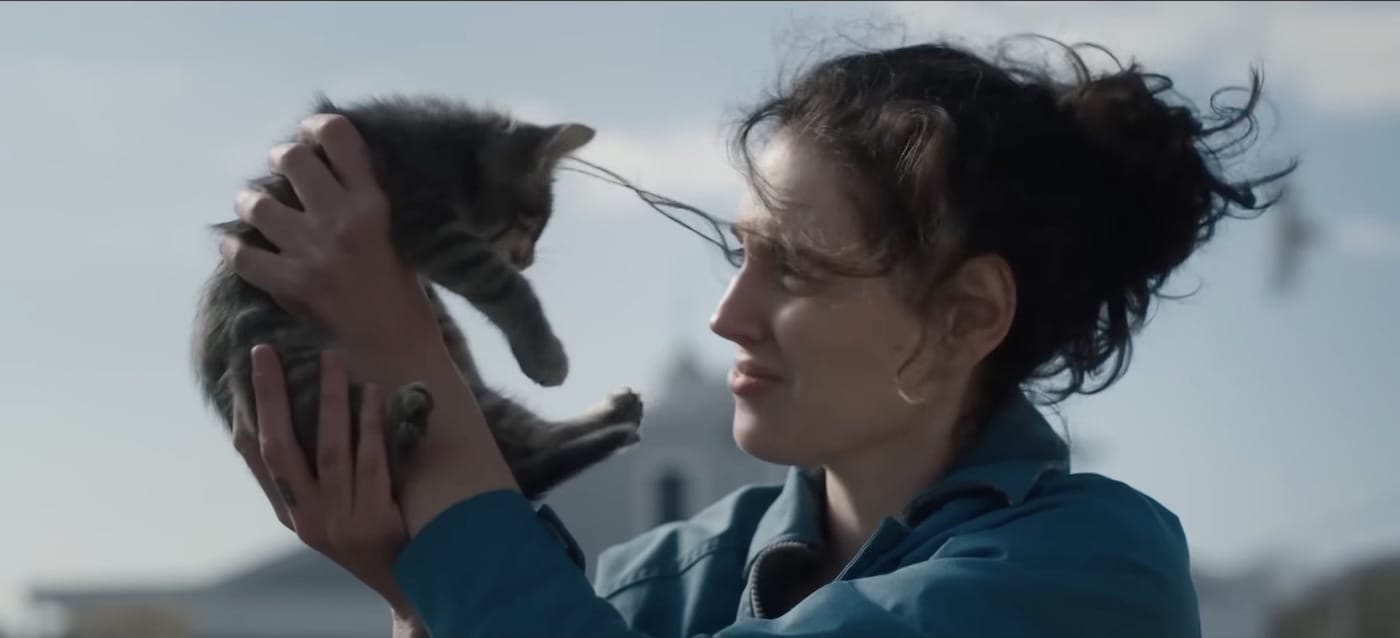
I don’t know anybody who, on a weekend, calls up their friends and says, “Let’s go watch that new film about the woman who gets traumatized for life.” So, I’m worried that a lot of moviegoers are going to miss one of my favorite films of the year so far.
That would be a shame. I hope that this first film from Eva Victor, Sorry, Baby, is the next movie you see, one way or another. Here in August 2025, it might still be playing on a few screens here and there. If not, it has started showing up for streaming rental on popular platforms. And I recommend that you see it with other people so you can talk about it afterwards. Why?
It heralds the arrival of an impressive new triple-threat filmmaker: Victor is the director, screenwriter, and lead actor, and with this film they’re winning comparisons to Greta Gerwig’s breakthrough feature Lady Bird.1
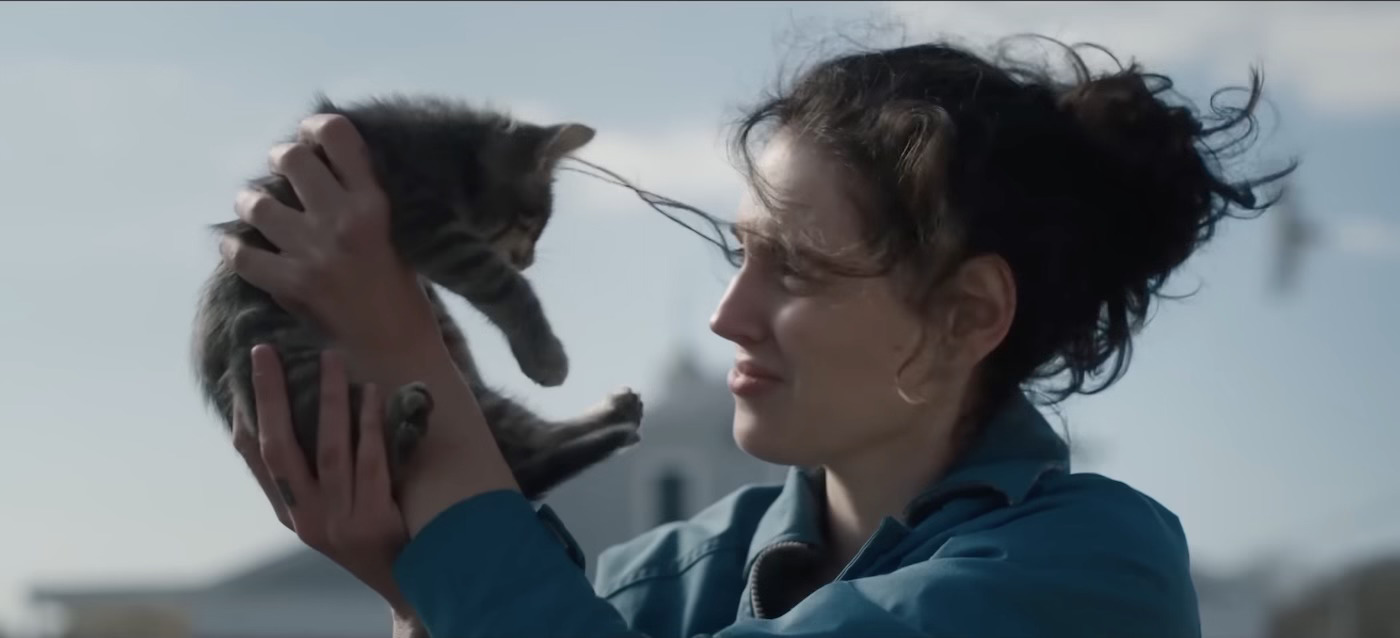
- It has a big heart. That is to say, Victor loves her characters, taking the time for us to observe their thoughtfulness, their suffering, their epiphanies. Like Gerwig, Victor pays attention and gives us opportunity to do the same. That turns a painful scenario into one that is hopeful.
- It elbows us in the ribs repeatedly for satisfying laughs.
- It has some of the smartest dialogue of the year.
- It gives another spotlight to Naomi Ackie (Mickey 17, Don’t Blink), my favorite new big-screen face. She is radiant here, and the tenderness of her character Lydie is affecting.
- And, yes, it depicts an insidious kind of violence that affects people everywhere—women and men alike—in ways that few will talk about. But it approaches this subject with care and respect, refraining from showing actual violence onscreen, trusting the audience’s intelligence and imagination to fill in the blanks.
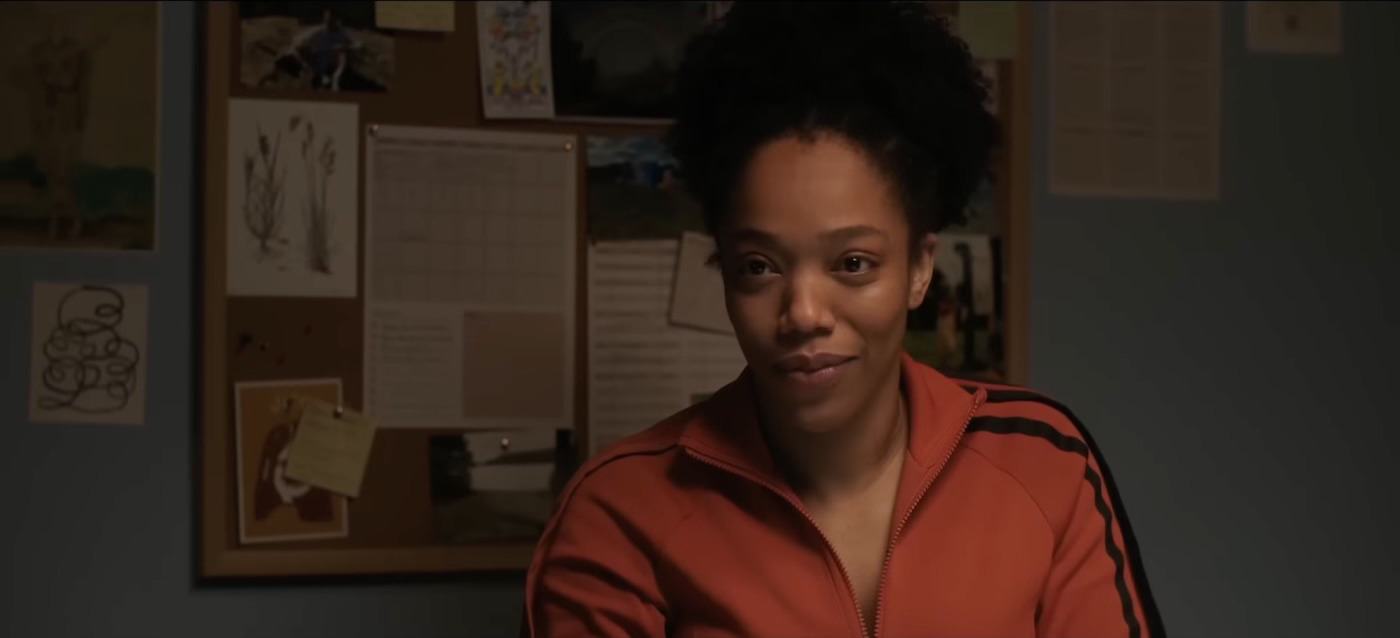
If you enjoy this review, subscribe! A free subscription gets you the occasional free post like this one right in your Inbox. Sign up for a paid subscription, and you’ll help cover the costs of resources that keep me writing. You’ll get access to past posts and all new posts, including “first impressions” film reviews.
Sorry, Baby introduces us to Agnes (Victor), an English professor teaching at the New England school where she once earned her doctorate. She’s at a gathering of friends who are reminiscing about their grad-school days and when the conversation takes an unfortunate turn, we see Agnes’s best friend Lydie (Ackie) jump in to protect her from harm.
This raises enough questions that we’re ready to learn more about who Agnes is, what caused her such pain, and why she seems so wounded, so anxious.
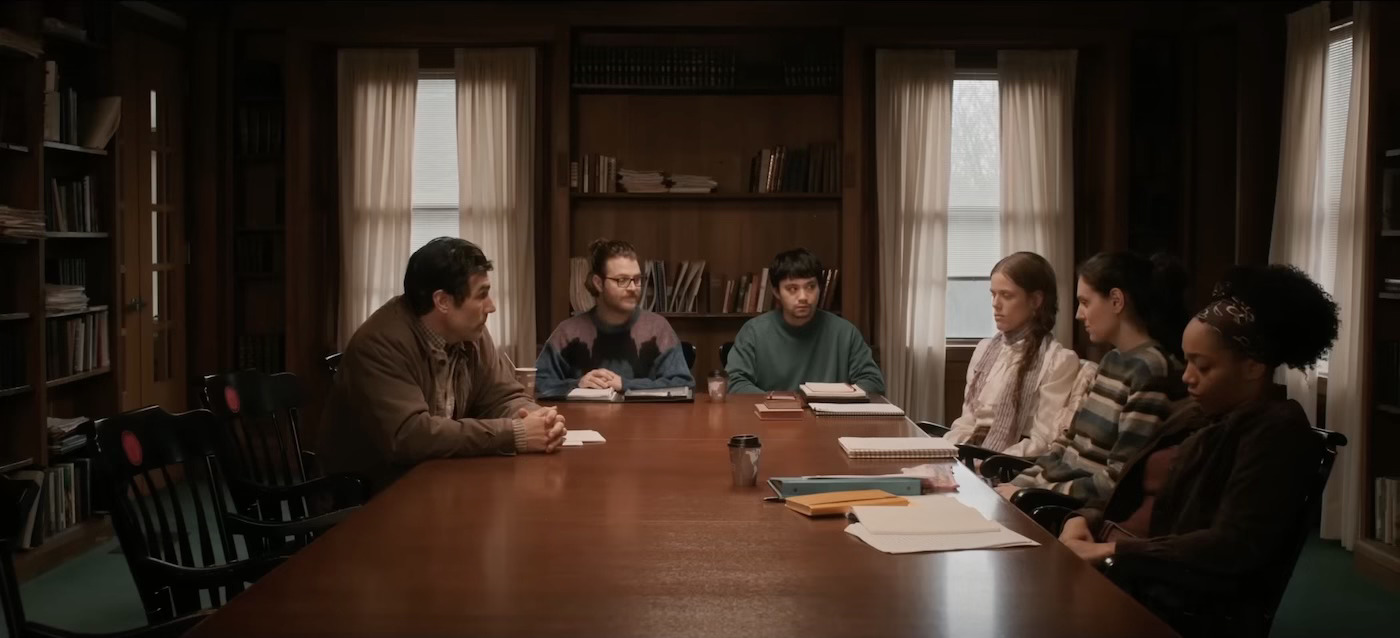
We learn that she is still in the same house, and that she has inherited the office of one of her former professors, a man who abruptly departed the school. In her conversations with Lydie, who has moved on, fallen in love, and is soon to be a mother, Agnes gives us enough pieces that we can put together a sufficient picture. While Agnes is cautiously exploring a new relationship with a neighbor (Lucas Hedges), she’s still living under the shadow of what happened one evening when someone she should have been able to trust violated that trust.
The rest of the film will follow her as she navigates the challenges of living on the same campus where she was hurt, spending hours every day in the same office as the one who betrayed her, dealing with hostility from a former classmate, and looking for things that will help her move forward with confidence even as she carries a wound that will never fully heal.
When it comes to subject matter as troubling as this, few films have managed to offer such well-rounded characters, such a nuanced community, so many moments of wry humor and even joy. Typical trauma dramas frame themselves as occasions for empathy, but their energy tells us that they’re hoping we equate shock and profundity. While Victor’s film is about trauma, it’s not intent on traumatizing the audience, or impressing us with realistic depictions of sexual violence.
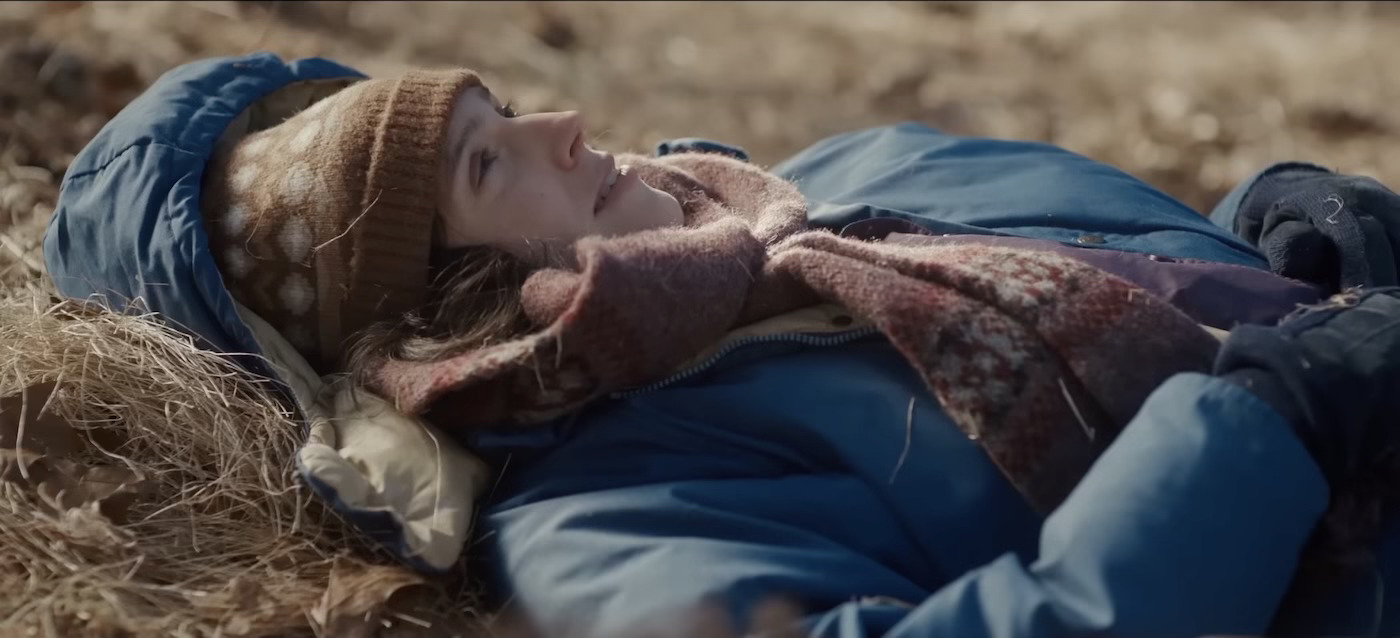
Instead, they’re giving us a close look at the kinds of circumstances that can lead to such violence, and the ways in which systems enable and protect offenders while failing to support victims. Moreover, they’re educating us in the ways that one hour’s indiscretions can really fracture someone’s sense of self, safety, and security for the rest of their life. This is a sensitizing experience, not a sensationalistic one, and it can cultivate empathy in the audience. And thus, it may be even more important for men in American culture to see and discuss this film than it is for anyone else.
There is one character obviously responsible for the harm in this particular narrative. But this takes place in a world where there are men and women alike who only make Agnes's suffering worse, and there are men and women alike who provide her with meaningful support. I really appreciate that balance.
Playing the small role of a sandwich-shop owner, the great character actor John Carroll Lynch (Fargo, Zodiac) stands out. He’s only in one scene, but he makes a powerful impression, giving the film a profound grace note. Lynch has had quite a range of roles in his career, but I think this is one of his finest moments.
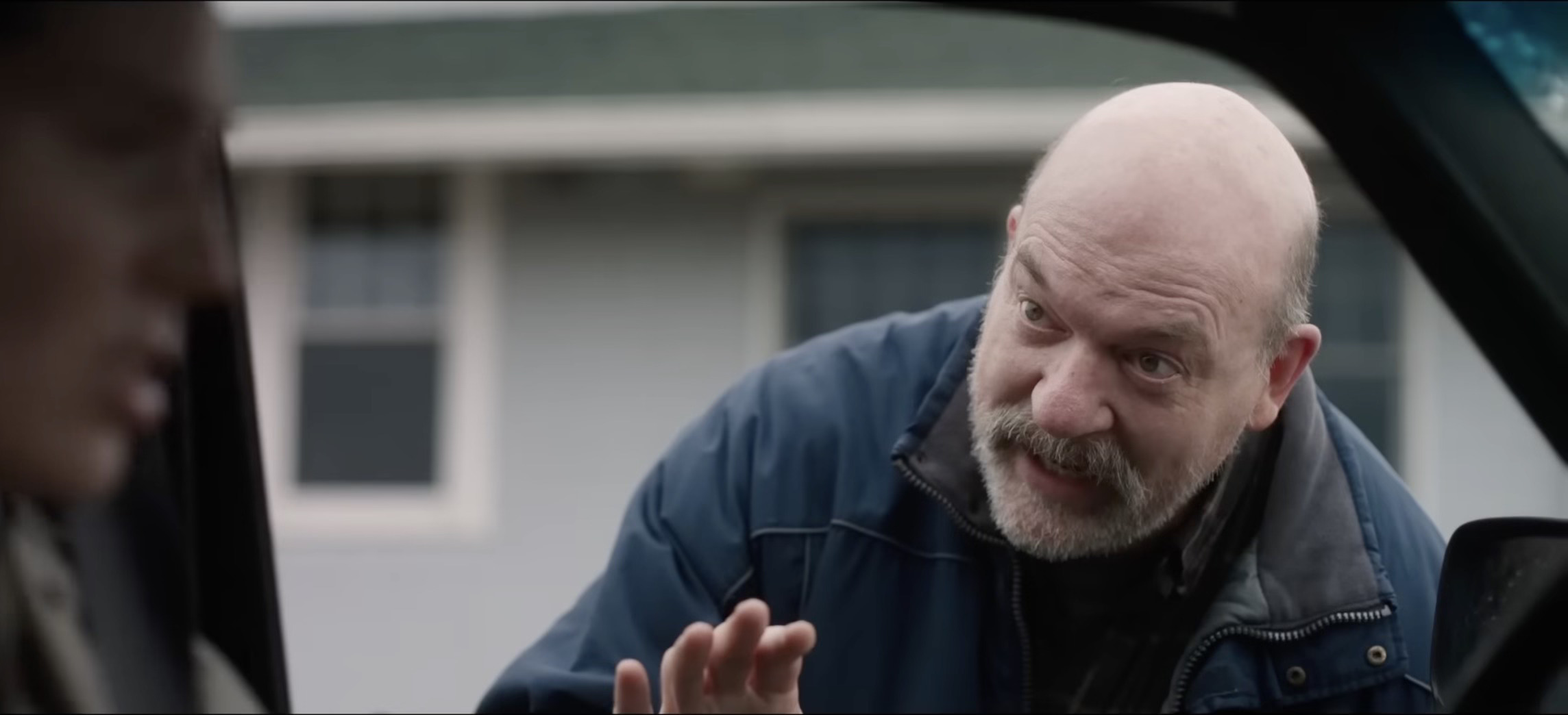
And Lucas Hedges, playing a “small-part” character—you'll get the joke when you see the film—is also effective in what strikes me as a particularly tricky role to get right. (In fact, watching him in this film makes me think Hedges would have made a great Gilbert Grape, the role that remains one of Johnny Depp’s finest and most understated, in a movie based on his father Peter Hedges’s beloved novel.)
Movies that deal with situations like this one—even those that are warm, funny, and sometimes delightful—are even more upsetting to me than most films categorized as Horror. That’s because I now know several people who have been inappropriately approached or even assaulted. And I’ve heard first-hand testimony of the lasting repercussions.
One of the most formative lessons of my undergraduate experience came right after graduation when I learned from a dear friend that a professor I admired had been sexually aggressive toward her. Ours was a Christian university, and I had been naive enough there that I had never imagined such a thing could be possible in my community. And I had admired this professor, and defended him against his critics, oblivious about his aggression until much later.
The “collateral damage” scar it left on my psyche is nothing compared to what my friend must have suffered. But I think about it whenever I think of this professor, his classes, and the hours I spent in a state of admiration and trust in that office. When someone with that kind of authority and privilege betrays trust that severely, the violence harms a whole community. It damages memories. It makes people more suspicious of one another, and thus more likely to be lonely.
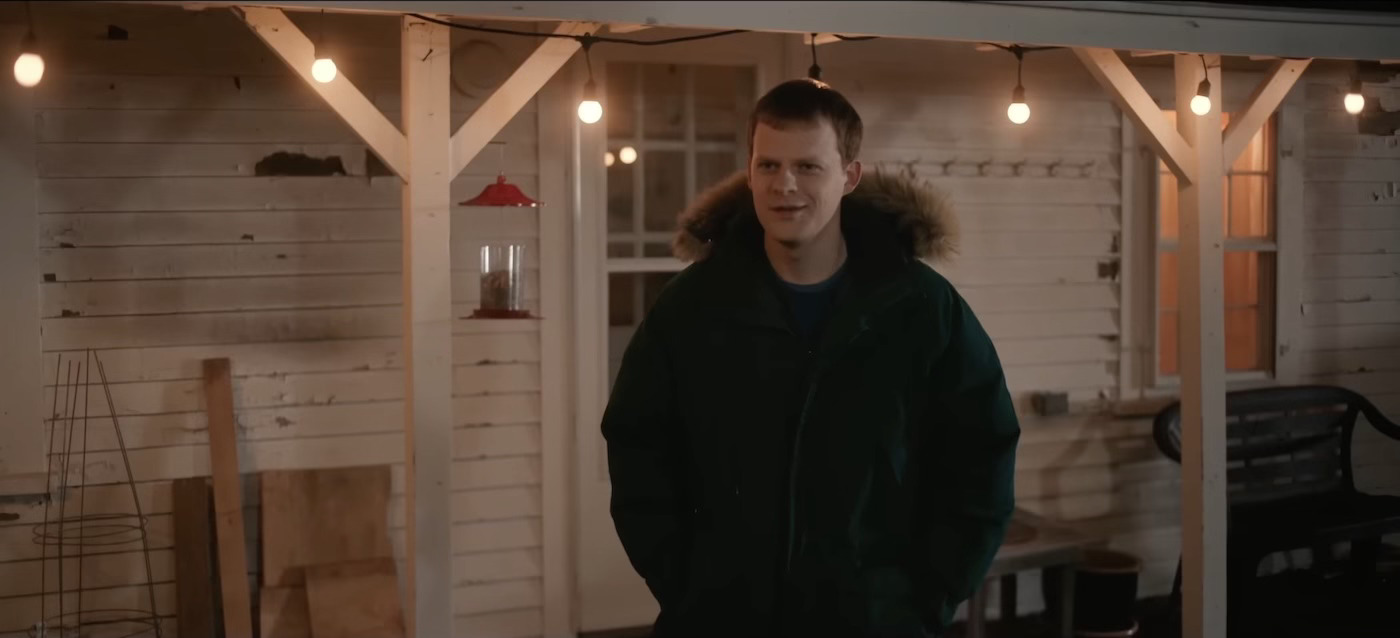
When I became a professor, I established a "No Closed Door" policy, and had my desk constructed to make boundaries of personal space clear. I’m uncomfortable when I observe students, particularly young women, routinely spending long hours in a professor’s office. The scriptures I call holy admonish me to avoid even the appearance of evil. And this kind of violence is so common that I want to do whatever I can to make my students know that I mean them no harm; that they are safe with me, that I will support them, that they can turn to me if they need help. I want to believe that such things are possible, and the best way to believe it is to make it so.
A film like Sorry, Baby would have been deemed far too sexually explicit for a classroom context when I was in school. Still, I wish someone had brought art like this to the table in one of those classrooms and cultivated a meaningful conversation about it. It might have equipped all of us to be more vigilant and compassionate — maybe even that troubled, arrogant professor. We needed those challenges, those wake-up calls.
Eva Victor should be very, very proud of the high-wire act they've pulled off here. Their direction is gentle and attentive; their writing is wise and witty without ever being heavy-handed; and their performance is raw and mercurial and persuasive.
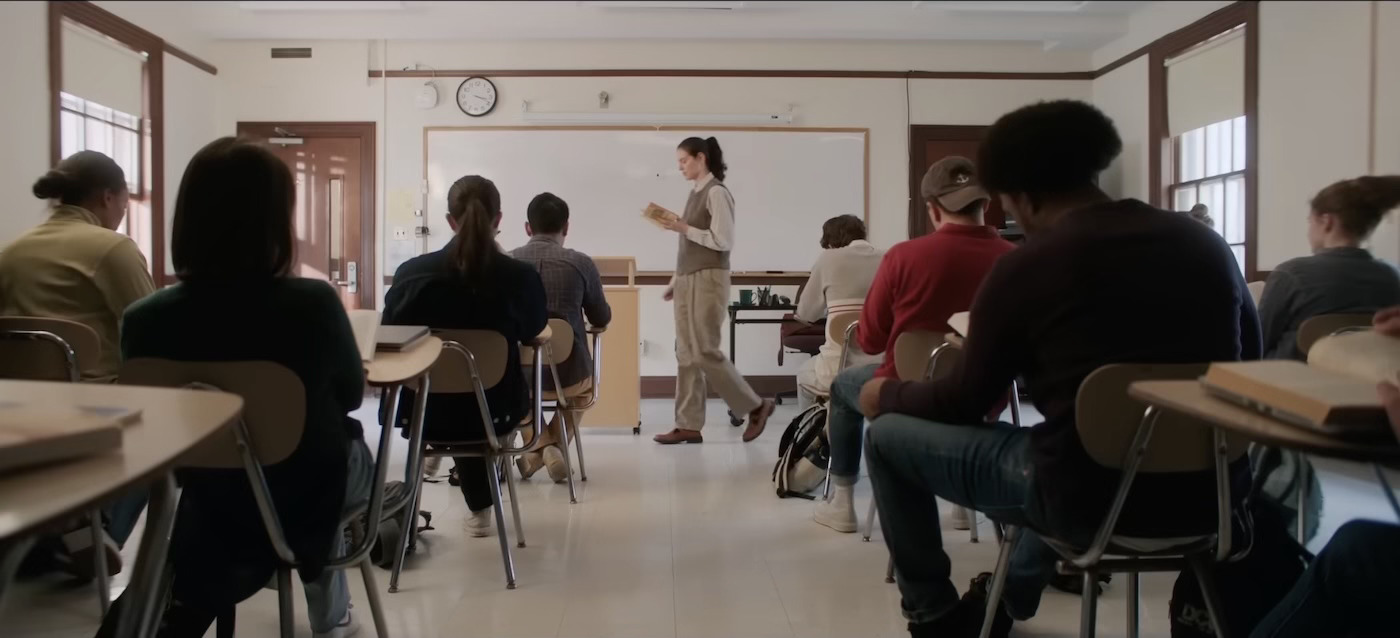
Having said all of that, if I have any reservations at all, well… I don’t. What I have is a question about Sorry, Baby’s closing scene. I won’t describe it here. If it’s going to work for anybody, they need to be surprised by it. I’ll just say this: It's kind of a big swing, conceptually. It didn’t quite work for me. But I heard sniffles in the audience behind me, so it’s working for some people. I hope to see it again — maybe I’ll feel differently.
Whatever the case, Sorry Baby is right up there among my very favorites of 2025 so far. In line with On Becoming a Guinea Fowl and Blue Sun Palace, Victor’s film makes 2025 a tremendous year for films about women that I hope everyone—but especially, every man—sees and takes to heart.
If we are just now finally seeing a wave of films that were inspired, in some way, by the #MeToo movement, well, I’m glad that’s happening. It also gives me hope that, in a few years, we’ll see the films we so desperately need right now about the many ways in which monstrous men are not only harming women, but treating American democracy, law, and order with the same arrogance, heartlessness, and selfishness. We need such difficult, discomforting movies to hold up mirrors and show us the ugliest part of ourselves, our neighbors, our cultures. After all, we aren’t likely to act and make meaningful change until we have to face the reality of such evils. We reveal who we really are to the world by how we respond.
One more thing:
As a cat owner who walks his cat on a leash, and whose cat recently dove at a patch of dirt and dragged a large mole right out of the earth — a mole that I had to extract from the cat's locked jaws and then put out of its considerable misery — I found one particular scene in this film far more difficult than it was probably meant to be.
I didn’t say that the movie has no violence in it at all.
And another thing!
I gotta admit that when one character holds up a first edition of Virginia Woolf’s To the Lighthouse, I couldn't help but laugh. I’m still incredulous, many years later, about that Jennifer Lopez vehicle The Boy Next Door in which she plays an English professor who has an affair with a student, and the student gives her a first edition hardback of The Iliad. I think that’s my favorite movie mistake of all time — right up there with the Star Wars stormtrooper who, running through an open door, slams his head on the frame and staggers backward. Whenever I think of The Iliad, I feel like I’m hit in the head just like that stormtrooper, and I stagger in disbelief.
I wouldn’t go quite so far as to call Victor a Gerwig-level talent—not yet. Maybe she is. Sorry Baby feels like a passion project that has been brewing for a long time. Time will tell how versatile and creative they are, if they’re rewarded enough for this film to get to make more. (For the record: Victor uses she/they pronouns. I learned this after writing my first draft of this review.) ↩
